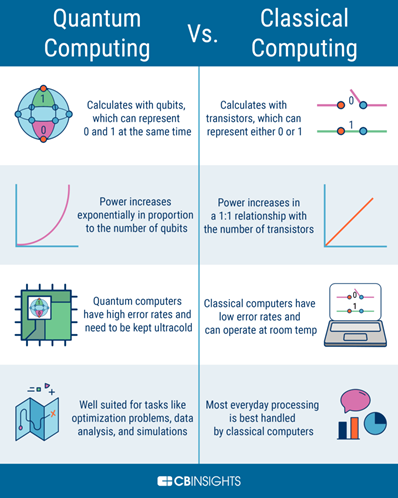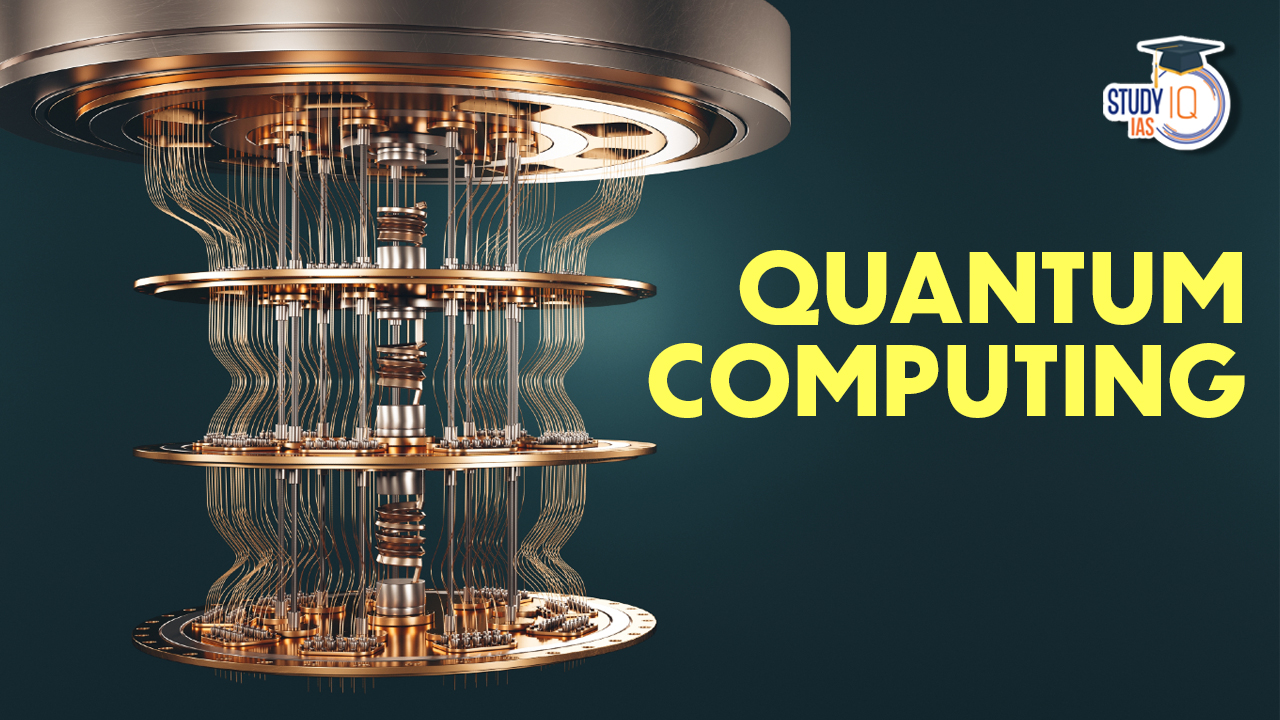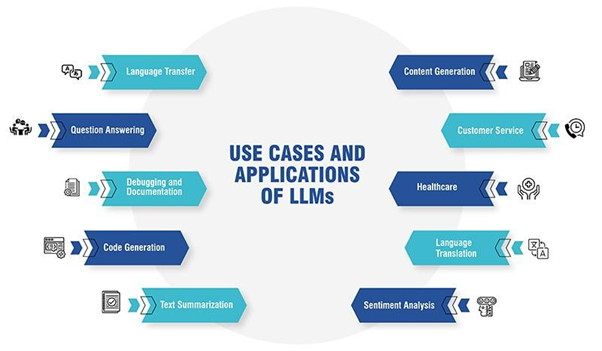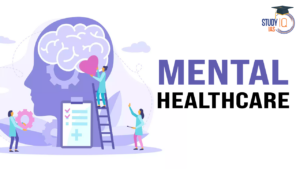Table of Contents
Recent advancements in Artificial Intelligence have revolutionised human-computer interactions but challenges like high energy consumption still exist. Quantum Computing can help LLMs to lower their carbon footprint & become more sophisticated for the same energy usage.
Quantum Computing
- Quantum computing uses the principles of quantum theory.
- Quantum theory explains how energy and matter behave at the atomic and subatomic levels.
- Quantum computing utilises the unusual behaviour of subatomic particles, like electrons or photons, at the microscopic level.
- These behaviours, known as superposition and entanglement
- In a quantum computer, the basic unit of memory is a quantum bit or qubit.
- Quantum bits, or qubits, allow the subatomic particles to exist in more than one state at the same time.
- Quantum computers can perform complex calculations much faster than conventional computers.
Study of Quantum Computing
The study of quantum computing is concerned with developing computer technology based on quantum theory, which describes the nature and behaviour of matter at the quantum level. Many nations, including Israel, the USA, China, Europe, and Australia, have already made significant investments in the study of quantum information and technologies. While working at the Argonne National Labs in the United States in 1981, Paul Benioff invented the fundamental components of quantum computing.
- Superposition and entanglement, two aspects of quantum physics, are the foundation of quantum computing
- A quantum system’s capacity to exist simultaneously in several states is known as superposition. On the other hand, entanglement refers to the capacity of a pair of qubits to exist in a single quantum state.
- These two characteristics enable quantum computers to perform functions beyond the capabilities of ordinary computers while using less energy.
- When it was discovered that some computer problems could be solved more effectively with quantum algorithms than with their classical equivalents, research in quantum computing started in the 1980s.
- The realms of finance, the military, intelligence, drug development, artificial intelligence, and digital manufacturing would all benefit greatly from quantum computing.

Various Qubit Technologies for Quantum Computing
- Superconducting Qubits: They are based on electrical circuits made of superconducting materials, typically niobium or aluminium.
- Trapped Ion Qubits: Trapped ion qubits use ions (charged atoms) that are trapped and manipulated using electromagnetic fields. The qubit states are typically encoded in the internal energy levels of the ions.
- Topological Qubits: Topological qubits are based on topological properties of certain exotic states of matter. These qubits rely on anyons, which are quasi-particles that emerge in two-dimensional systems.
- Quantum Dot Qubits: Quantum dots are nanoscale regions that can confine and manipulate individual electrons. Qubits are encoded in the spin or charge states of these confined electrons.
- Photonic Qubits: Photonic qubits use particles of light, known as photons, as qubits. The qubit states are typically encoded in the polarization or the path of the photons.
- Majorana Qubits: Majorana qubits are based on quasi-particles called Majorana fermions, which are predicted to exist in certain solid-state systems.
Difference between Quantum Computing and Classical Computing
Check the difference between Quantum Computing and Classical Computing in the table given below:
| Quantum computing | Classical computing |
| Based on the phenomenon of Quantum Mechanics or quantum physics. | Based on the phenomenon of classical physics. |
| Information storage and manipulation are based on Quantum Bit or “qubit” i.e. 0, 1, and superposition state of both 0 and 1 to represent information. | Information storage and manipulation are based on “bit”, which is based on voltage or charge; low is 0, and high is 1. |
| It is possible to be in more than one state at a time. | There is the possibility of being only in a single state at a given time, either on or off. |
| In quantum computers, data processing is done in the Quantum Processing Unit or QPU, which consists of several interconnected qubits. | In conventional computers, data processing is done in a Central Processing Unit or CPU, which consists of an Arithmetic and Logic Unit (ALU), processor registers, and a control unit. |
| Quantum computers will allow much larger calculations. | Classical computers are limited in terms of size and complexity. |

Applications of Quantum Computing
A game-changing technology for many different sectors, governments, and society at large might be quantum computing. The application of quantum computing is numerous check some of them below:
Aerospace Industry
- The computational difficulties in aviation modelling, simulation, and other fields can be greatly reduced by quantum computing.
- Additionally, it might provide insight into the ideal speed and fuel consumption for a commercial aircraft, thereby assisting the sector in enhancing its sustainability performance.
Artificial Intelligence and Big Data
- By enabling AI programmes to sift through the enormous datasets pertaining to medical research, consumer behaviour, financial markets, etc., quantum computers could enhance machine learning.
- Data integration, pattern recognition, and fast analysis are all made possible by quantum computing.
Space
- The detection of gravitational waves will be aided by the quantum computer’s scalability.
- can be used to search the universe for planets that are hospitable.
- can support space suit and spacecraft modelling and design.
Medicine
- Early detection of cancers and the creation of medications with improved targeting will accelerate the field of pharmacology.
- Could be applied to deliver quicker, more precise diagnoses.
- Reduce the amount of radiation damage to healthy tissue by allowing therapists to perform more simulations in a shorter amount of time.
- Could speed up precision medicine.
Agriculture
- A weed optimisation method to assist in weed detection.
- As a result, farmers can successfully create fertilisers.
- can be used to decide how many inputs are appropriate.
Cybersecurity
- Machine learning combined with quantum computing can aid in the development of numerous strategies to counter cybersecurity threats.
- Quantum cryptography, another name for encryption, can also be developed with the aid of quantum computing.
Weather Forecasting and Climate Change
- The ability of quantum computers to process enormous amounts of data quickly could in fact improve weather system modelling and enable scientists to quickly and accurately predict changing weather patterns, which can be crucial at this point in time when the world is experiencing climate change.
- Meteorologists will be able to create and analyse more intricate climate models with quantum computers, which will give them a better understanding of climate change and how to slow it down.
Financial Services
- By developing novel methods to analyse financial data and identifying important global risk indicators, quantum computers can be used for sophisticated financial modelling and risk management in the financial sector.
- The employment of sophisticated algorithms to automatically initiate share dealings based on a wide range of market conditions is known as algorithmic trading.
- Can be applied to stock markets to find issues.
| Large Language Models (LLMs) |
|
Concerns Associated with Quantum Computing
- Higher cost: The cost of setting of Quantum Computing system is high. It will require a significant support from multinational companies.
- Temperature control: Quantum computers dissipate high heat and consume high amount of electric power. They require low temperature for operation.
- High error rate: The error rate of Quantum Computing is high in comparison to error rate of conventional computers.
- Sensitivity to Environment: Quantum technology is highly sensitive to environmental interference, such as temperature changes, magnetic fields, and vibrations.
- Qubits are easily disrupted by their surroundings which can cause them to lose their quantum properties and make mistakes in calculations.
- Limited Control: It is difficult to control and manipulate quantum systems. Quantum-powered AI could create unintended consequences.
Initiatives taken by the Government
| Initiatives taken by the Government | |
| Initiatives | Details |
| National Quantum Mission (NQM) |
|
| Quantum-Enabled Science and Technology (QuEST) |
|
| Quantum Frontier mission |
|
| Quantum Computer Simulator Toolkit (QSim) |
|
| I-HUB QTF |
|
| Quantum Computing Applications Lab |
|



 INS Udaygiri, Key Features, Capabilities...
INS Udaygiri, Key Features, Capabilities...
 Goods and Services Tax (GST), Objectives...
Goods and Services Tax (GST), Objectives...
 Mental Healthcare in India, Scope and Go...
Mental Healthcare in India, Scope and Go...





















